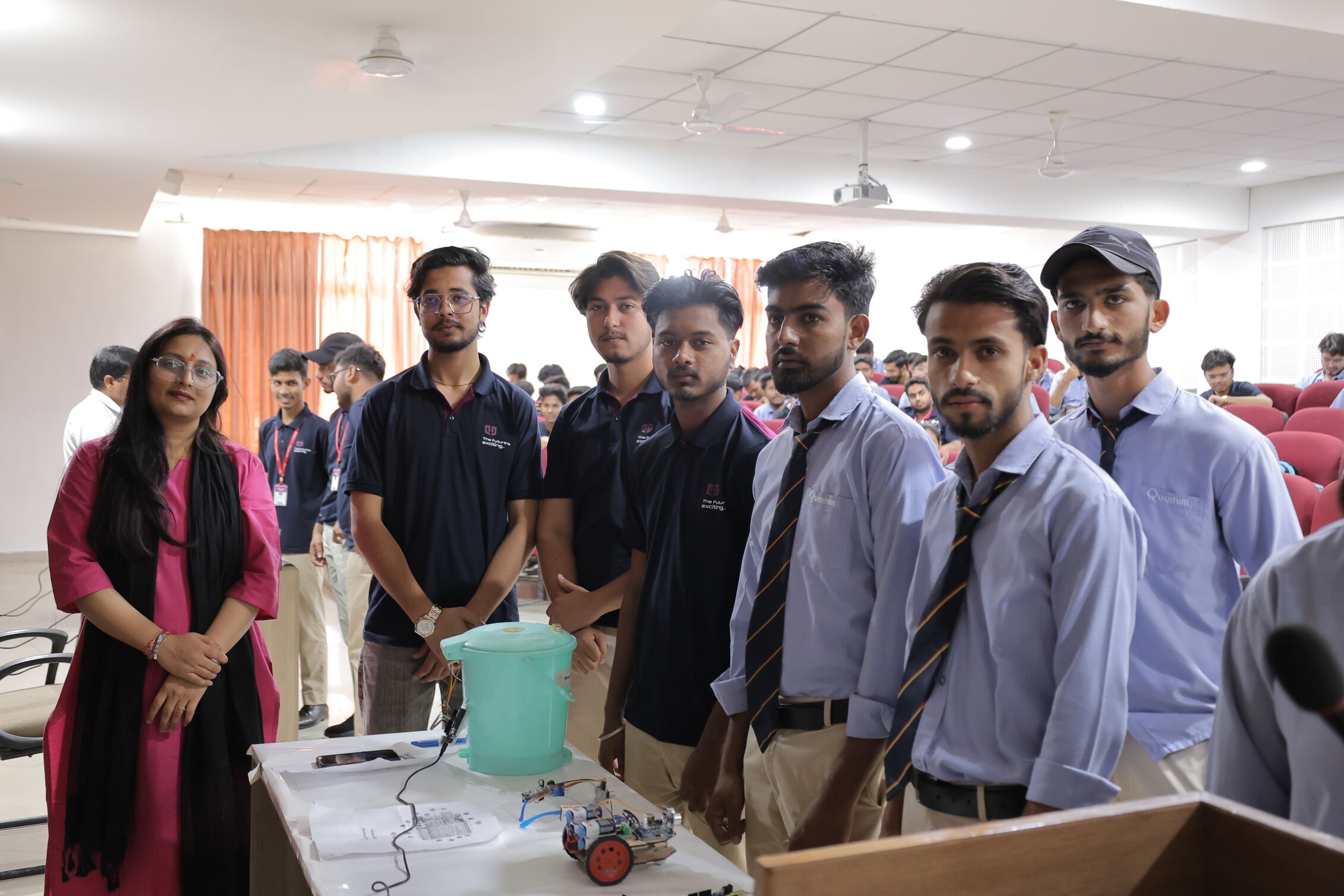In its ongoing efforts to prepare students for the real-world demands of the tech industry, the Department of Computer Applications at Quantum University successfully conducted a Hands-on Training Workshop on Computer Hardware Maintenance for BCA and MCA students. This dynamic and skill-oriented workshop focused on demystifying the inner workings of computer systems and fostering practical expertise in hardware assembly, maintenance, and troubleshooting.
Held under the guidance of Ms. Neha Pokhriyal and the technical lab team from Quantum University, the session created an immersive learning environment where students could touch, explore, and experiment with computer components—stepping beyond classroom theory into the realm of hands-on experience.

 Breaking Down the Machine: Topics That Made an Impact
Breaking Down the Machine: Topics That Made an Impact
The workshop offered a well-rounded journey through the world of hardware, covering five major areas:
- Introduction to Computer Hardware
Students explored the building blocks of a computer—motherboards, processors, RAM, storage devices, power units, and cooling systems. They understood the role of each component and how they function together to power a system. - Hardware Assembly & Disassembly
A step-by-step demo enabled students to assemble and disassemble full systems, offering a real-world simulation of hardware setup and upgrades. From handling delicate components to understanding internal architecture, students got their hands dirty (literally!) and loved it. - Troubleshooting Techniques
This segment introduced common hardware issues, like faulty RAM or loose connections, and taught diagnostic and corrective steps. The emphasis was on practical solutions—turning students into proactive problem solvers. - Preventive Maintenance Practices
Maintaining hardware longevity is just as important as fixing it. Students learned routine maintenance strategies, such as dust cleaning, checking for wear and tear, thermal paste applications, and cable management. - IoT Integration
The session concluded with a fascinating introduction to IoT, connecting the dots between hardware and the growing world of connected devices. Students learned how computer hardware interfaces with IoT systems, opening doors to future innovations.

 Hands-On, Minds-On: What Students Took Away
Hands-On, Minds-On: What Students Took Away
With sleeves rolled up and toolkits in hand, students took part in a range of practical activities:



By the end of the session, students:




“It was our first time opening up a computer and working on the components ourselves. This experience made everything we learned in class come alive!” – BCA Student Participant
 From Lab to Life: Building Future-Ready Technocrats
From Lab to Life: Building Future-Ready Technocrats
Workshops like these are a key part of Quantum University’s hands-on learning philosophy, blending academic depth with real-world application. Students not only developed vital hardware skills but also discovered the confidence and curiosity needed to tackle more complex technological challenges.
“We believe in empowering students to not just learn technology—but to live it. This workshop is a step toward making them industry-ready.” – Ms. Neha Pokhriyal
 Acknowledgments & Future Vision
Acknowledgments & Future Vision
The department extended heartfelt thanks to Ms. Neha Pokhriyal and the lab technicians for their dedication, patience, and guidance throughout the session. Their efforts ensured that students received personalized mentorship and left the workshop with a sense of achievement and curiosity for more.
With the overwhelming success and participation in the workshop, the Department of Computer Applications looks forward to organizing more practical training modules focused on networking, cybersecurity, cloud systems, and IoT development.



